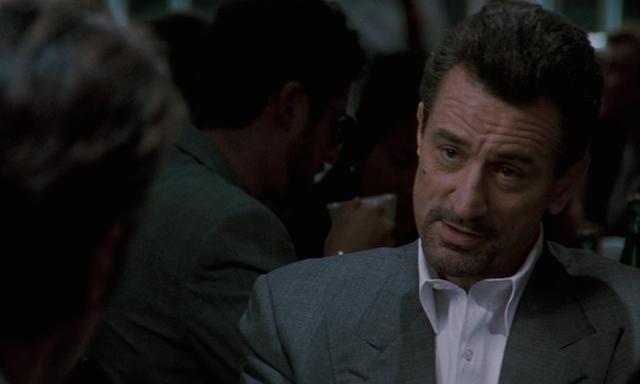Key Scene is a new feature series on entertainment.ie where we look at a key scene from movies, how it locks into the overall story, and why it works so well that we're talking about still to this day.
When you talk about the careers of Al Pacino and Robert DeNiro, their variance in quality is something that's always been a factor. For every 'Awakenings' or 'Dog Day Afternoon', you have to contend with something like 'Jack & Jill' or 'Dirty Grandpa'. Both actors operate at different wavelengths, and while their careers have largely followed the same peaks and troughs, they've only appeared on screen a handful of times together.
The first is 'The Godfather Part II', the most recent is Martin Scorsese's 'The Irishman', but the most potent out of all these is 'Heat'. Directed by Michael Mann and originally conceived of as a TV pilot called 'LA Takedown', the mythic casting of DeNiro and Pacino was enough to grab people's attention in 1995 and has held it to this day.
Yet, for all of its lengthy runtime, again, they only spend a handful of scenes together. They cross each other in the gloomy shadows of the night in Los Angeles, hunting and evading one another, each certain the other means them harm, yet the respect for their craft is there. It's only when Pacino's dogged Hanna tracks him by helicopter and engages in a high-speed chase to the sounds of Moby's cover of 'New Dawn Fades' that the two finally meet in a lay-by, before convening in a nearby coffee house.
Michael Mann took inspiration from the scene in real-life. Chuck Adamson, a Chicago PD detective, chased an armed robber - named Neil McAuley, no less - for several months, and eventually met him in a diner and tried to convince him to leave town rather than have him kill him. McAuley eventually died in a hail of bullets in 1964 after a failed heist. Adamson shot him dead on the front lawn of someone's house after a foot-chase.
Adamson's recollection of the fateful meeting before this bloody ending is almost word-for-word what's said in 'Heat', but the movie allows for more introspection and self-examination. They talk about dreams they have, how they haunt them and how they know their time is short. They discuss their choice of career and wonder aloud, together, if they were capable of doing anything else. Of course, we know neither is capable of such things.
When you come right down to it, 'Heat' is a story about what it costs to be the best at what you do, and to live that authentically. For both McAuley and Hanna, their personal lives are a "disaster zone". McAuley lives a cut-off life, unable to be open with anyone or allow himself human vulnerability. Hanna, meanwhile, places no value on personal relationships and abandons them as soon as he's set himself on a target.
Yet, in this scene, both characters acknowledge their failings. They both know they're screwed, that they can't do anything else, and they can't help themselves. One's an unstoppable force, the other's an immovable object. The scene pings back and forth between them, each of them fully aware that when they meet next, there will be no hesitation. DeNiro's face drops to a deathly chill when he states, reminding his shadow that he won't do it, "not for a second."
If there's any moment in 'Heat' that defines the movie and the story, it's this. There are no second guesses in it, no moments of insincerity or deception. Both characters exist in a space that doesn't allow them to do anything else. Moreover, when they meet again, that honesty and that conviction of purpose will be met. It's why, in their final moments together, McAuley reminds him of their meeting.
He told him, clearly, that he was never going back. And he never did.



















































































